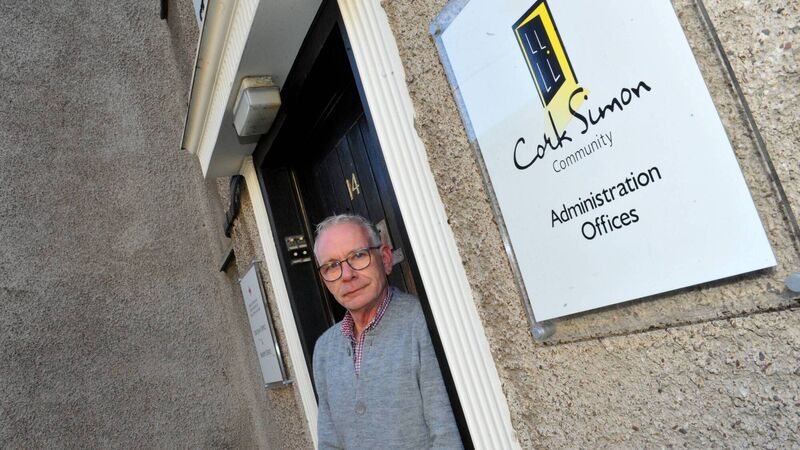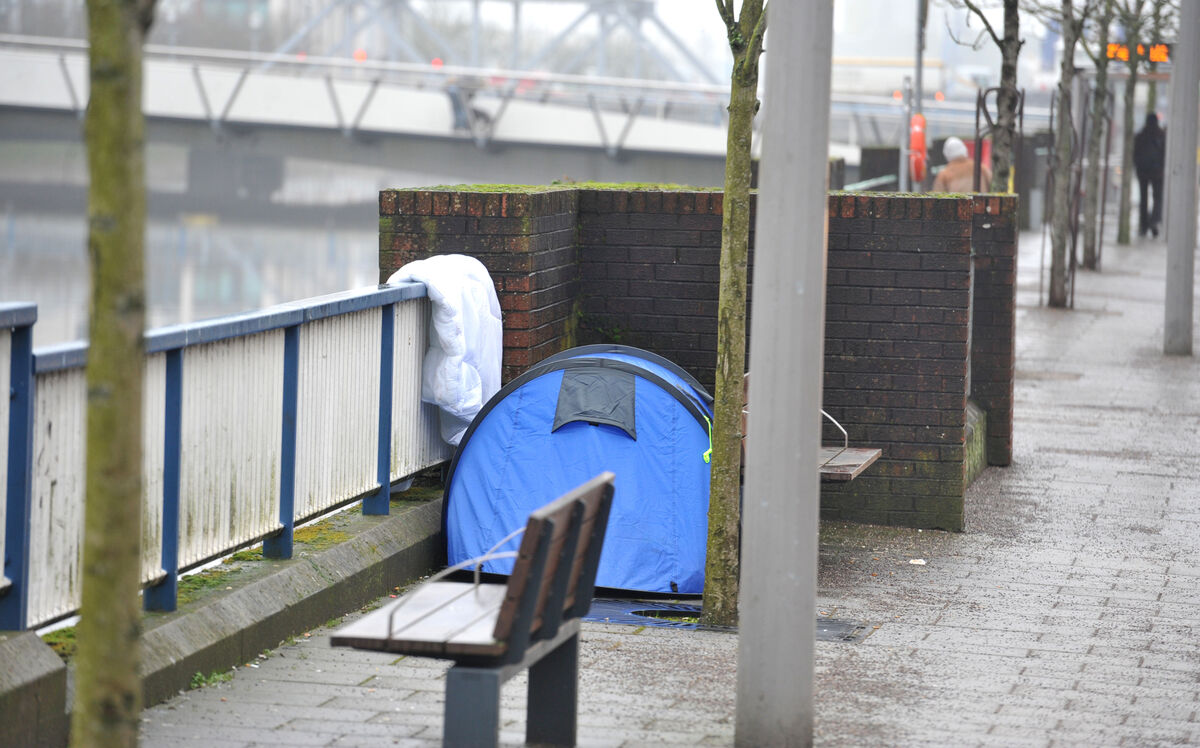'It's as bad as we've ever seen it': Concern over numbers entering homelessness in Cork city

"We’re accommodating more people than ever before in our emergency shelter," said Paul Sheehan. Pic: Larry Cummins.
A CORK charity has voiced concern at the number of people entering homelessness and said it is accommodating more people than ever at its emergency shelter in the city.
“It’s as bad as we’ve ever seen it," said Paul Sheehan, Head of Campaigns and Communications at Cork Simon.
"We’re accommodating more people than ever before in our emergency shelter. We’re meeting more people than ever before sleeping rough,” he told The Echo.
“Last year, we saw unprecedented numbers of people presenting to our day service, presenting to our soup run. Those pressures are real and in the first two months of this year, there’s no sign of them alleviating.”
Mr Sheehan was speaking ahead of today’s meeting between the Joint Committee on Housing, Local Government and Heritage and key stakeholders to discuss homelessness and potential solutions to problems seen on the ground.
Cork Simon will be among those speaking during the meeting, alongside Alone, National One Parent Family Alliance, and North West Simon.
Officials from the Department of Housing, Local Government and Heritage, and representatives from Dublin Region Homeless Executive (DRHE) and Cork City Council will also address the Committee.

Mr Sheehan said Cork Simon “absolutely welcomes” the opportunity to give the Committee a perspective of what’s happening outside of Dublin.
“We need some significant input from government to be able to address homelessness effectively and a lot of that is around taking a look at the housing targets and to ensure that they are adequately aligned with the protective population growth and ensuring that people do have the support they need, whether it’s in emergency accommodation or when they leave emergency accommodation so that they don’t return,” he said.
“We do everything we can to prevent people from depending on emergency accommodation in the first place and to make sure in the short term that adequate emergency accommodation is available for people who need it. Emergency accommodation isn’t the answer to homelessness but in the short term, it is absolutely necessary," he added.
Mr Sheehan said access to housing people can afford is also key.
"The cost of housing is beyond far too many people’s reach at this stage. We will be publishing a report in the next couple of weeks about the increase in young people living at home and they’re doing so because they simply can’t afford to find a place to live. Their lives are effectively on hold.
“Whether you’re depending on the private rental sector or whether you’re trying to buy your first home, the costs even for somebody with a good paying salary are beyond people’s reach. If you’re depending on social and affordable housing, you could be waiting a very long time to be able to access that. So, across the board, we need to take a cold, hard look at the dysfunctions within our housing system and address them as quickly as we can.”
Mr Sheehan said the progress that has been made over the last 12 months will also be highlighted during the meeting and highlighted Cork Simon’s positive partnership with local authorities in the South West and the HSE which he said has proven to be very effective.
Caitríona Twomey of Cork Penny Dinners said she believes the solution “must come from the government and they must listen to the people who have workable solutions”.
“At the minute, the increase in the presence of rough sleepers in our communities has become an unreliable reality and it’s not just in the city anymore, it’s out in the communities,” she said.
“Their plight is heart-wrenching. When we go out at night, we witness individuals enduring freezing temperatures and rain without shelter. It’s distressing for them and it’s a distressing sight for us and that demands urgent action.”
Ms Twomey said it is “imperative” that the presence of not only rough sleepers is acknowledged, but also the hidden homeless who she said find themselves constantly moving between different family members' or friends’ homes and those who are in full-time employment but cannot afford to buy food or heat their homes.
“We have people who are working and are coming to us because they have no food. They’re hungry,” she said.
“They have no food in their homes and they’re getting up in the morning before work and they’re hungry. They get some sandwiches to have for lunch or to have there and then and to have a hot soup. We see that every single day. And we see people trying to make ends meet and worrying about the bills.”







 App?
App?


